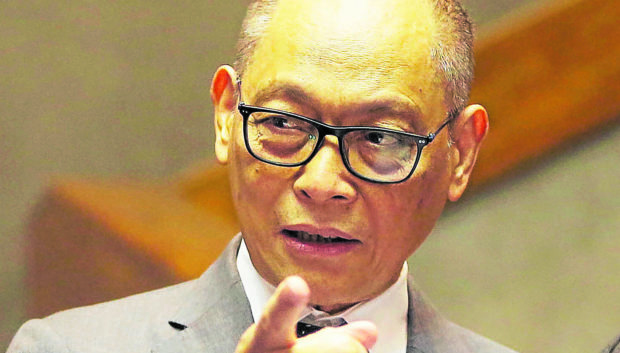Debt defaults pose biggest threat to PH financial stability, says Diokno
The risks facing the Philippine financial system are manageable except for concerns over the ability of borrowers to repay their debts, due mainly to the economic uncertainty created by the COVID-19 pandemic, according to the head of an interagency monitoring group.
In a statement, Bangko Sentral ng Pilipinas (BSP) Governor Benjamin Diokno said the Financial Stability Coordination Council met recently and determined that six of the 11 risk areas being monitored were under control.
These are risks to monetary policy, risks to fiscal policy, contagion risk, concentration risk, liquidity risk and geo-political risk.
But servicing debts and credit-related risks are the primary concerns in the financial market today, Diokno said as the chair of the group.
“COVID-19 has created similar problems throughout the world and the loss of incomes is the most common scar from this pandemic-cum-recession,” he said. “This has left borrowers vulnerable because their capacity to service their debts has been put at risk.”
Immediate measures
Early into the pandemic, financial authorities intervened to ensure adequate liquidity in the financial system, and back-stopped this with other regulatory relief measures.
“This is a different crisis and the authorities will not hesitate to think out-of-the-box in order to sustain a well-functioning market,” Diokno said.
The risk statement of the council—composed of the BSP, the Department of Finance, Insurance Commission, Philippine Deposit Insurance Corp. and Securities and Exchange Commission—also highlighted the risks that emerging markets and developing economies are facing from the advanced economies.
Spillover risks
The council chair said that “while every jurisdiction has a scar from COVID-19, the scars differ from jurisdiction to jurisdiction. While all forecasts point to a better year in 2021, the world economy is recovering at multiple speeds and this is creating spillover risks from advanced economies and into emerging markets.”
But Diokno said the council’s market surveillance continued to be active as conditions remained fluid.
The council, a venue for financial market authorities to identify, monitor, manage and mitigate the buildup of systemic risks, expects to issue quarterly “Statements on the State of Stability” although it is keeping its communication lines open should material market updates arise.
Diokno also reiterated his strong belief in the power of policy communication.
“Regulators may look at many indicators but we act with the public on top of our mind,” he said. “To ensure that our stakeholders make well-informed decisions, it is incumbent on us regulators to continue our dialogue with our publics.”
“This is where the Council steps in and offers a cross-cutting view of risks,” Diokno said. “We have a unique vantage point of seeing how all the elements interact and affect the welfare of the system.” INQ

